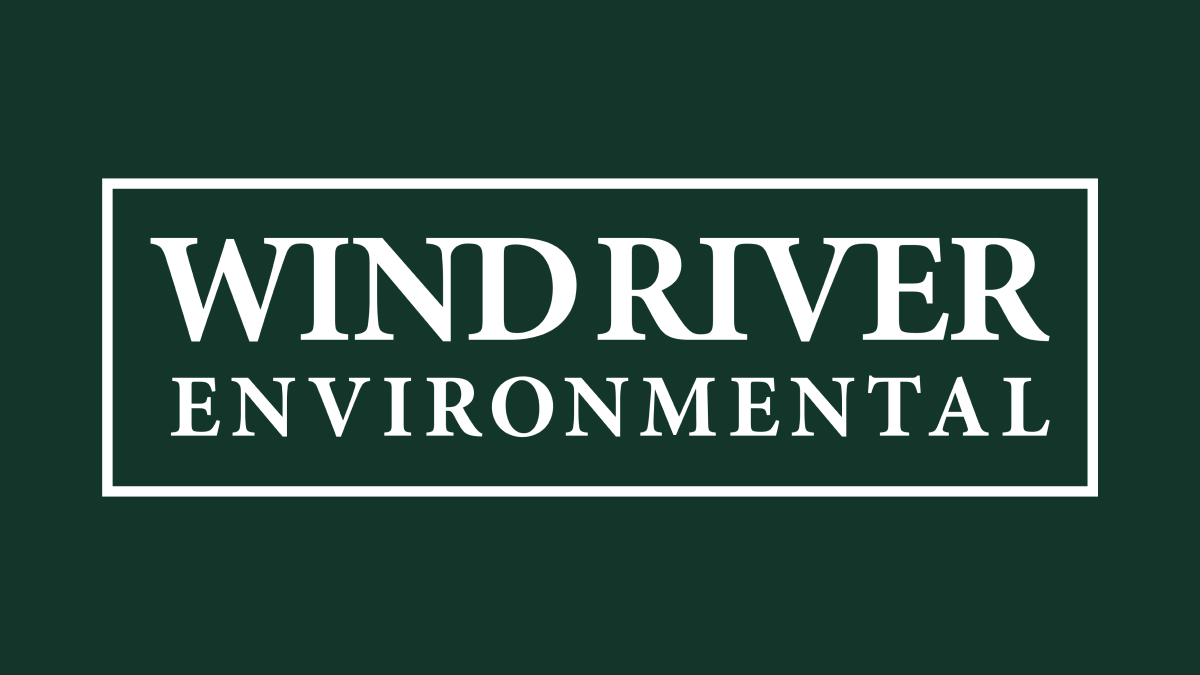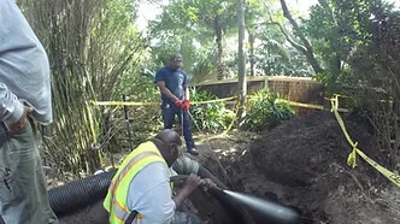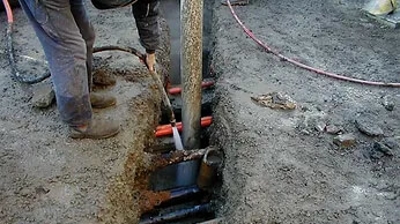What is Hydro Excavation?
Hydro excavation is a method that uses high-powered vacuuming and pressurized water to remove earth and surrounding pipes, cables, or whatever you are trying to reach underground. An air conveyance or vacuum is then used to transfer the soil or debris to a vacuum truck. This allows for a non-destructive and more accurate way to excavate soil and locate underground utilities.
Hydro Excavation Process:
Hydro excavation is a process that uses a combination of pressurized water, to soften the soil and debris around pipe systems, and an air vacuum to take out the soil and debris and pit them into a vacuum truck. It is the most preferred method of digging because of its efficiency and accuracy. Traditional digging methods can be tedious, dangerous, and costly.
On thing that stands out the most to clients who prefer hydro excavation is that it does not require digging, which means, the surrounding soil is not disturbed. This eliminates the additional time and team required.
Hydro Excavation Safety Guidelines:
Hydro excavation safety begins with the right equipment and a highly trained and experienced staff that understands how to maintain a safe project from start to finish. The following are some common hazards and best practices for hydro excavation usage:
Natural Gas Lines:
Prior to carrying out excavation or boring projects, gas lines must be marked and identified with paint or stakes. This is carried out to ensure any potential cross bores are located and it's for the safety of the gas line to make sure that it isn't accidentally cut. A video inspection is usually carried out first to determine the location of these lines and anything else that might be a hazard during the job.
Once lines have been located, 3 feet surrounding the area to expose the gas line should be dug by hand or with a low pressure hydrovac. By combining water pressure and vacuum suction to excavate the ground, hydrovac methods are also effective when working with frozen ground or other harsh terrain. It is especially useful in reducing hand-exposure during hand-dig projects.
Underground Cables
It is important to ensure each digging nozzle end is protected with a non-conductive coating and that all vacuum tube ends are protected with soft, non-conductive, coating. Doing so is the best way to avoid damage to underground utilities. Conversely, the use of steel-crown ends can cause damage to utility lines and should never be used. Job-site safety include treating all electrical utility lines as live with the potential to cause serious injury or death.
If an on-site contractor is working with exposed energized or isolated cables, the following practices must be adhered to :
- Staff and public must be warned of on-site hazards when entering or passing by the job site.
- The contractor must display signs
- When excavating is in progress, signs indicating "Danger" must be posted within 10 feet of the truck. This is done to reduce the risk of step or touch injury.
- In order to avoid electrical touch injury, no person should come in contact with the truck while the excavation is taking place.
Overhead Wires:
Safety practices must always be adhered to when overhead electrical lines and electrical equipment are present. When voltage is unknown, it is required that all personnel and equipment on-site keep a minimum of 69 feet from overhead lines.
Safe movement distances must also be monitored when the boom is in use. When boom movement is required in the are of overhead power lines, safety communication practices must be followed to avoid accidents. These safety procedures also apply during set-up or repositioning of boom equipment.
Occasionally, rocks or surface debris can clog the dig tube and must be removed to retain proper suction. It is important to be cautious when repositioning the dig tube, especially if it must be elevated to remove the blockage.
Proper Equipment & Trained Staff for Hydro Excavation :
The safety of our workers is the top priority here at Wind River Environmental, we hire only the most experienced and well trained staff members and always provide the right equipment to make sure the job gets done effectively and efficiently. At Wind River Environmental, we :
- Use pressurized water to soften and break up the ground.
- Remove the debris with a vacuum unit, allowing us to safely dig under any conditions.
- Do not damage the surrounding area or any buried sensitive utilities, such as water, sewer, gas, or hydro.
- Hire experienced operators and train them to dig safely without exposing themselves or others to the dangers of hitting buried utilities, avoiding injury, liability, and expensive repair costs.
These methods allow us confidence in hydro excavation safety and help maintain an efficient procedure from start to finish, giving our clients quality work and peace of mind throughout their entire project. If you are in need of a hydro excavation service or more information, please contact us, (877) 560-9007, and one of our hydro excavation contractors would be happy to assist you.





